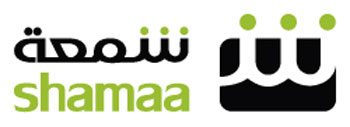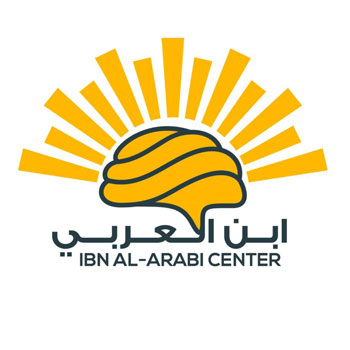تأثير استراتيجية التعلم التعاوني في تنمية مهارات اتخاذ القرار لدى متعلمي التعليم الثانوي الإعدادي: دراسة تجريبية في مادة الجغرافيا، حول موضوع الموارد المائية
DOI:
https://doi.org/10.56989/benkj.v5i4.1452الكلمات المفتاحية:
التعلم التعاوني، مهارات اتخاذ القرار، التعلم النشطالملخص
سعت هذه الدراسة إلى قياس أثر توظيف "استراتيجيات التعلم التعاوني" في تدريس الجغرافيا على تطوير مهارات اتخاذ القرار لدى تلاميذ التعليم الثانوي. تم تنفيذ الدراسة وفق المنهج شبه التجريبي، حيث شملت تطبيق اختبارات قبلية وبعدية على عينة تتكون من 29 مشاركا يدرسون في المرحلة الثانوية.
بهدف تحقيق غايات البحث، تم تصميم مقياس محدد لقياس قدرات المتعلمين في اتخاذ القرار، مع تطبيقه قبل وبعد تدريس وحدة الجغرافيا باستخدام التعلم-التعاوني. توصلت الدراسة إلى عدة نتائج أبرزها: وجود فروق ذات مغزى إحصائي بين المتعلمين في المجموعتين الضابطة والتجريبية عند مستوى دلالة α = 0.05، مما يشير إلى الأثر الإيجابي للتعلم-التعاوني في تطوير مهارات اتخاذ القرار. كما أظهر معامل "D" لكوهين أن التأثير كان بدرجة مرتفعة.
استنادًا إلى ما توصلت إليه الدراسة، أوصت الدراسة بتوظيف أساليب التعلم النشط، لا سيما التعلم التعاوني، ضمن مقررات الجغرافيا لدعم تنمية مهارات اتخاذ القرار لدى المتعلمين.
This study aimed to measure the impact of employing "cooperative learning strategies" in geography teaching on developing decision-making skills among secondary school students. It was conducted using a quasi-experimental method, which included applying pre- and post-tests to a sample of 29 participants studying at the secondary level.
In order to achieve the research objectives, a specific scale was designed to measure learners' decision-making abilities, applied before and after teaching the geography unit using cooperative learning. The study reached several conclusions, the most notable being: the presence of statistically significant differences between learners in the control and experimental groups at the significance level of α = 0.05, indicating the positive effect of cooperative learning on developing decision-making skills. Cohen's "D" coefficient also showed that the effect was at a high level.
Based on the study's findings, the study recommended employing active learning methods, particularly cooperative learning, within geography courses to support the development of decision-making skills among learners.
المقاييس
المراجع
أولا. المراجع العربية:
أبو الحاج، س. أ. والمصالحة، ح. خ. (2016): استراتيجيات التعلم النشط: أنشطة وتطبيقات عملية، ط1، مركز ديبونو لتعليم التفكير.
جروان، ف. ع. (2011): تعليم التفكر: مفاهيم وتطبيقات، دار الفكر.
سللي، ع. (2014): الطرائق النشطة في تدريس الجغرافيا: دراسة تحليلية للأدبيات التربوية الرسمية المؤطرة للجغرافيا المدرسية في النظام التعليمي المغربي، كلية علوم التربية، جامعة محمد الخامس السويسي: أطروحة ماجستير غير منشورة.
شوارتز، ر. (2008): تعليم مهارات التفكير: القضايا والأساليب (ترجمة: عبد الله النافع وفادي دهان)، مؤسسة النافع للبحوث والاستشارات العلمية.
المنصوري، ع. م. ع. (2017): التقنيات التعليمية الحديثة في تدريس الجغرافيا بالمرحلة الثانوية بمحافظة عمران واتجاهات المعلمين نحوها ومعوقات استخدامها، المجلة العربية للعلوم ونشر الأبحاث: مجلة العلوم التربوية والنفسية.
موسى، م. أ. (2019): أثر استخدام بعض استراتيجيات التعلم النشط في تدريس الجغرافيا لتنمية التفاعل الاجتماعي والاتجاه نحو بعض القضايا المجتمعية لدى تلاميذ المرحلة الإعدادية، مجلة كلية علوم التربية، جامعة الأزهر، (182)، الجزء 2.
وزارة التربية الوطنية. (2009): البرامج والتوجيهات التربوية الخاصة بمادة الاجتماعيات بسلك التعليم الثانوي الإعدادي، مديرية المناهج والحياة المدرسية.
ثانيا. المراجع الأجنبية:
• Benoit, B. (2004). Problem-based learning. Retrieved February 6, 2005.
• Casteel, J., & Stahl, R. (1997). Doorway to decision making. Prnfrack Press.
• Johnson, D. W., Johnson, R. T., & Smith, K. A. (2014). Co-operative learning: Improving university instruction by basing practice on validated theory. Journal on Excellence in College Teaching, 25(3-4), 87.
• Kadim, S. Z., & Qassim, T. Y. (2024). Teaching geography with active learning: The power of thinking strategy as a model. Pakistan Journal of Life and Social Sciences, 22(1), 4336-4344 .
• Nguyen, T. T., Bui, H. V., Dang-Thi, N.-T., Truong-Thi, T.-T., & Tran-Chi, V.-L. (2021). Pedagogy undergraduates’ perception on twenty-first-century skills. Journal for Educators, Teachers and Trainers, 12(4), 90-94.
• Reinfried, S., & Hertig, P. (2011). Geographical education: How human-environment-society processes work. In UNESCO-EOLSS Joint Committee (Eds.), Encyclopedia of Life Support Systems (EOLSS). Eolss Publishers.
• Rimawi, O., & ALMasri, H. (2021). Relationship between cognitive distortions and decision-making skills among Al-Quds University students. Humanities & Social Sciences Reviews, 9(1), 57-68.
• Singh, Y. P., & Agrawal, A. (2011). Introduction to co-operative learning. Indian Streams Research Journal, 1(2).
• Slavin, R. E., Hurley, E., & Chamberlain, A. (2003). Cooperative learning and achievement: Theory and research. In W. M. Reynolds & G. E. Miller (Eds.), Handbook of psychology: Educational psychology (Vol. 7, pp. 177-198). Wiley .
• Wang, Y., & Ruhe, G. (2007). The cognitive process of decision making International Journal of Cognitive Informatics and Natural Intelligence, 1(2), 73-85 .
• Yang, X., & Chen, P. (2022). Applying active learning strategies to develop the professional teaching competency of Chinese college student teachers in the context of geography education. International Journal of Learning, Teaching and Educational Research, 21(7), 178-196.
• Zeidler, D., Sadler, T., Applebaum, S., & Callahan, B. (2009). Advancing reflective judgment through socioscientific issues. Journal of Research in Science Teaching, 46(1), 74-101.
التنزيلات
منشور
كيفية الاقتباس
إصدار
القسم
الرخصة
الحقوق الفكرية (c) 2025 مجلة ابن خلدون للدراسات والأبحاث

هذا العمل مرخص بموجب Creative Commons Attribution-NonCommercial 4.0 International License.































 ElDjawda Soft
ElDjawda Soft